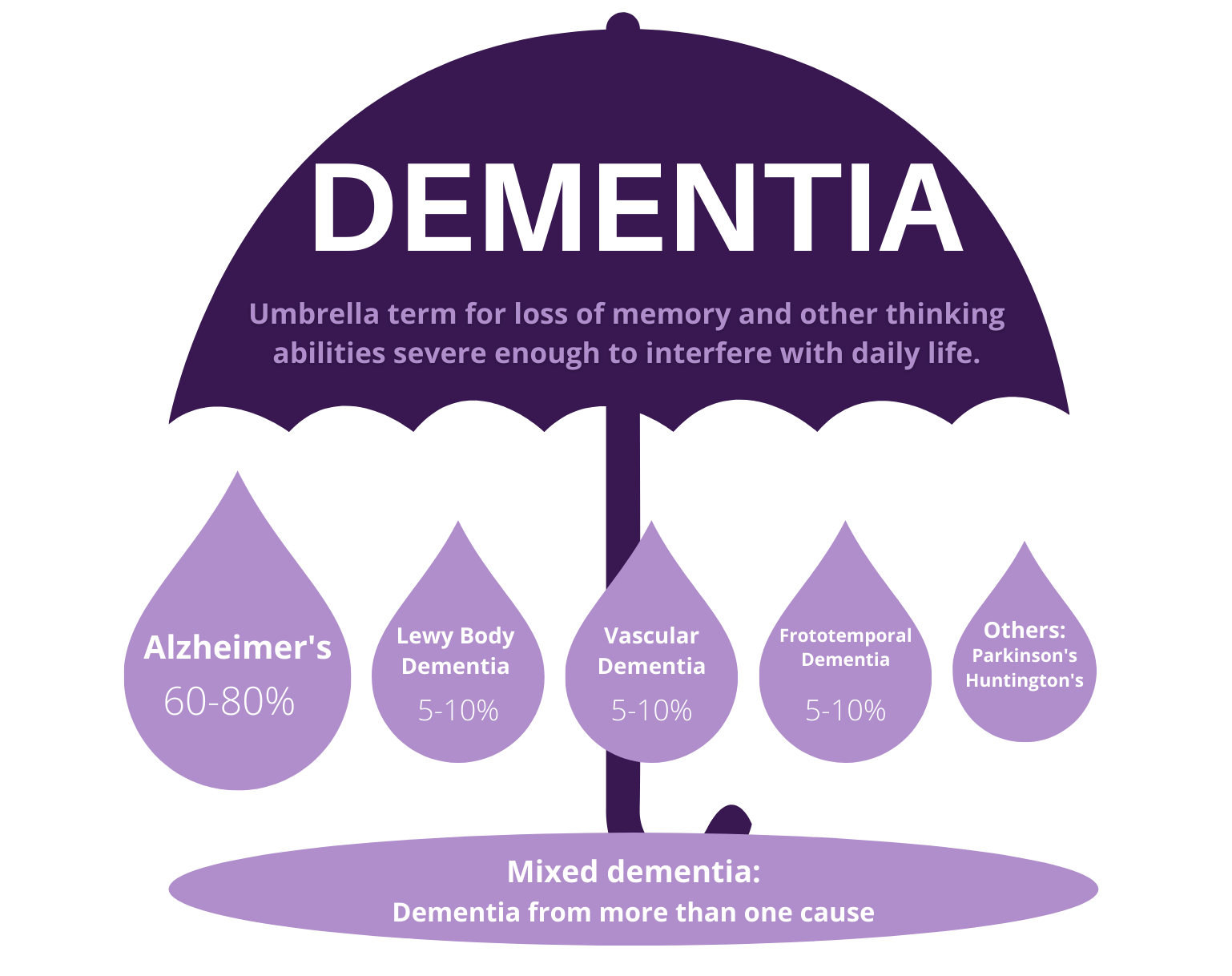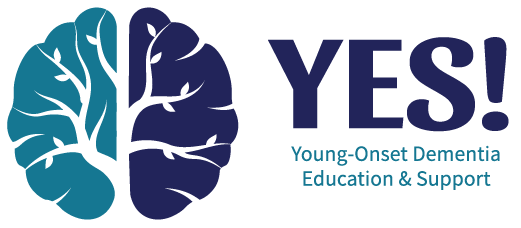Definition
Dementia is a general term describing loss of memory, thinking and social abilities that interferes with daily living. Alzheimer’s is just one type of dementia and there are over 400 different types of dementia. Contrary to popular belief, dementia is not a normal part of aging.
Early onset dementia first occurs in people under age 65, often in those in their forties. Some of the challenges with early onset dementia are:
- It takes longer to diagnose, as it is not as common
- It presents differently than later onset—communication, behavior and physical problems may occur before memory issues
- It may affect different regions of the brain than later onset
- It has greater consequences to the patient and family due to arrival during prime years
Please see our page on About Young Onset Dementia page for more information.
Primary Types of Dementia
- Alzheimer’s Disease – Most common form of dementia—progressive disease causing memory loss and cognitive decline
- Lewy Body Dementia/Parkinson’s Disease Dementia—progressive disease causing movement disorders along with cognitive decline, hallucinations, behavior changes, sleep disorders, and changes in autonomic body functions (blood pressure, bladder/bowel)
- Cerebrovascular/Vascular – Dementia resulting from impaired blood flow to the brain
- Frontotemporal- Group of disorders caused by degeneration in frontal and temporal lobes of brain that affects behavior, language and movement

Early Signs/Recognizing the Symptoms of Early Onset Dementia
- Forgetting recently learned information
- Difficulty with problem solving, planning, and math
- Difficulty completing familiar tasks
- Confusion with time and place
- Trouble understanding visual images/hallucinations in Lewy Body Dementia
- Language problems-trouble finding words, completing thoughts
- Misplacing things
- Poor judgment/decreased inhibition/delusions
- Social withdrawal
- Change in mood and personality—depression/apathy and anxiety
- Sleep problems—REM sleep disorder (acting out dreams) in Lewy Body Dementia
Progression
Often begins with diagnosis of Mild Cognitive Impairment, which does not interfere with daily living
Duration and stages vary depending on type of dementia
Generally progresses to increased disease severity and need for assistance with daily living
Late stage generally affects ability to speak and walk

